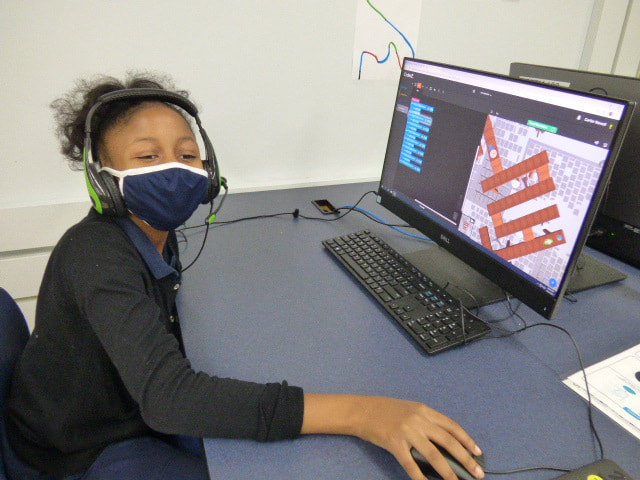In today’s fast-paced world, convenience often trumps quality, especially when it comes to our meals. Many people rely on takeout, pre-packaged foods, or dining out due to busy schedules and the allure of quick meals. However, there’s an undeniable case for cooking at home—not just for financial savings but also for the remarkable health benefits it offers. Let’s explore how preparing meals at home can significantly impact your health and well-being.
1. Control Over Ingredients
One of the most significant advantages of cooking at home is the ability to control what goes into your meals. When you prepare your own food, you can choose fresh, wholesome ingredients that suit your dietary needs and preferences. This is particularly beneficial for individuals with specific health conditions, such as diabetes, hypertension, or food allergies, as it allows for precise ingredient selection.
For example, if you’re watching your sodium intake, you can reduce or eliminate added salt in your recipes, something that’s often difficult to manage with restaurant meals or packaged foods. You can also opt for healthier cooking methods, such as steaming or grilling instead of frying, which can greatly reduce the fat and calorie content of your meals.
2. Portion Control
Restaurant portions tend to be larger than necessary, leading many to consume more calories than they should in a single meal. Cooking at home allows you to manage your portions more effectively. By serving appropriate-sized portions, you can better align your meals with your nutritional goals, whether that means losing weight, maintaining a healthy weight, or simply feeling more energetic throughout the day.
Additionally, when you cook at home, you can prepare smaller amounts of richer foods that you might enjoy in moderation, preventing the habit of overeating or mindless snacking that often accompanies larger restaurant portions.
3. Improved Nutrition
Home-cooked meals tend to be more nutritious than their takeout counterparts. Many restaurants use higher amounts of fats, sugars, and salts to enhance flavor and appeal. By cooking at home, you can emphasize whole foods such as vegetables, lean proteins, and whole grains, which are essential for a balanced diet. If you’re looking to diversify your cooking options, consider exploring the Best Vegetarian Air Fryer Cookbook. This resource can provide you with delicious, healthy recipes that utilize the air fryer, allowing you to prepare meals with less oil while maintaining flavor and nutrition.
Furthermore, cooking at home encourages creativity in your meals. Experimenting with different ingredients, herbs, and spices can lead to discovering new flavors and healthier cooking alternatives. For instance, you can swap refined carbohydrates like white rice for quinoa or brown rice, increasing your fiber intake and enhancing the nutritional value of your meals.
4. Enhanced Mental Health
The act of cooking can be therapeutic. Engaging in the kitchen allows you to focus on the task at hand, providing a sense of accomplishment and creativity. This can help reduce stress and anxiety, offering a much-needed break from the chaos of daily life.
Moreover, cooking at home can promote mindfulness. Taking the time to prepare meals can encourage you to be present and appreciate the process, from selecting fresh ingredients to savoring the final dish. Mindful cooking and eating can lead to a healthier relationship with food and a better understanding of what you are consuming.
5. Cost-Effectiveness
While not directly a health benefit, the financial savings of cooking at home can indirectly support your well-being. Eating out frequently can add up quickly, leading to stress about finances. By preparing your meals, you can significantly reduce your food expenses and allocate your budget to other health-related areas, such as gym memberships, fitness classes, or even healthier food options.
Additionally, home cooking allows you to take advantage of bulk purchases, seasonal produce, and sales, maximizing your grocery budget while providing fresh ingredients for your meals. Meal planning and batch cooking can also minimize waste, ensuring you get the most value from your groceries.
6. Family Bonding
Cooking at home is an excellent opportunity for family bonding. Involving family members in the cooking process can create a sense of teamwork and responsibility. Children can learn essential life skills and develop healthy eating habits that will benefit them for years to come.
Moreover, shared meals foster connection and communication. Family dinners can provide a platform for discussing daily experiences, challenges, and successes, reinforcing emotional bonds and enhancing mental well-being. In our digital age, prioritizing these moments can contribute significantly to a healthy family dynamic.
7. Healthier Lifestyle Choices
Establishing a habit of cooking at home can lead to broader lifestyle changes. Individuals who cook at home regularly tend to make healthier choices in other areas of their lives as well. This might include increased physical activity, better sleep hygiene, and more mindful eating practices.
When you invest time in preparing meals, you may become more conscious of your overall health and well-being. You might find yourself more motivated to engage in physical activity or prioritize self-care routines, creating a positive feedback loop that supports a healthier lifestyle.

8. Learning Opportunities
Cooking is a skill that can continually evolve. When you prepare meals at home, you’re not just nourishing your body; you’re also learning. You can explore different cuisines, cooking techniques, and nutritional information, all of which can enhance your knowledge and enjoyment of food.
There are countless resources available, from cookbooks to online tutorials, that can help you expand your culinary skills. The more you learn about cooking and nutrition, the more empowered you’ll feel to make healthy choices and explore diverse food cultures.
9. Greater Satisfaction
There’s a unique satisfaction that comes from cooking a meal from scratch. The process of preparing food, combined with the aroma and taste of a homemade dish, can create a sense of accomplishment and joy. This emotional satisfaction can contribute to your overall well-being, enhancing your mental health and creating positive associations with food.
When you savor a meal you’ve cooked yourself, you are more likely to appreciate the flavors, textures, and nutritional benefits of your dish. This connection to food can lead to healthier eating habits and a greater appreciation for the meals you consume.
Conclusion
The benefits of cooking at home extend far beyond simply saving money. From controlling ingredients and managing portions to enhancing mental health and fostering family bonds, the impact on your overall well-being is profound. By prioritizing home cooking, you can create healthier, more satisfying meals that support not just your physical health but your mental and emotional well-being as well. So, roll up your sleeves, gather your ingredients, and start exploring the delicious and nutritious world of home-cooked meals!




